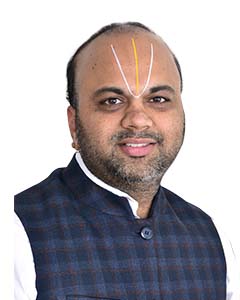The Goods and Services Tax (GST) regime was intended to create a uniform and harmonious nation-wide tax system. The union government and states have concurrent powers under article 246A (1) of the constitution to levy GST on supplies of goods and services by enacting their own laws. To ensure uniformity, the Goods and Services Tax Council (GST Council), a constitutional body, was created to make recommendations to the union and states on important matters related to GST, such as rates of tax, exemptions and place of supply. The first four years since the introduction of GST has witnessed very few hiccups and deviations in the execution of the council recommendations. Though some occasional disagreements have arisen, in general there has been an unswerving implementation of the tax policy nationwide. An important factor for this success has been the compensation provided by the union to the states for losses suffered due to GST. With the compensation period coming to an end in July 2022 and no indication of further extension on the horizon, the looming question is whether this stability is sustainable in the long run.

Executive partner
Lakshmikumaran & Sridharan
The core consideration is whether the states are bound by the recommendations of the GST Council. In other words, can states ignore the council recommendations and go their own way?
The authors are of the view that the recommendations of the GST Council are not binding, and states are under no obligation to comply. States are expected to treat the recommendations as guiding principles while keeping in mind the objective to ensure a harmonised tax regime. Any other view would violate the federal structure of the constitution.
Federalism is a delicate balance of power that the constitutional framers had envisaged to ensure uniformity in the basic policies adopted by the union at one end, while upholding the autonomy of states to manage their own affairs at the other end. This federal character is one of the fundamental facets of the constitution and cannot be negated by any constitutional amendment: SR Bommai v Union of India.

Principal associate
Lakshmikumaran & Sridharan
The Constitution (One Hundred and First Amendment) Act, 2016, created the GST Council. It prescribes the overall constitutional framework governing the GST and article 279A provides that the council will make recommendations to the union and the states. The term “recommendation” is not indicative of a binding nature. In Manohar v State of Maharashtra, the Supreme Court observed that a recommendation must be seen in contradistinction to a direction or mandate. In 2010, the union government while elucidating on the powers of the GST Council dropped the word “binding” from the bill introducing the GST. In 2013, when the Standing Committee on Finance submitted a report on the Constitution (One Hundred Fifteenth Amendment) Amendment Bill, 2011, it recognised that the recommendations of the council were only benchmarks or guidance to the union and state governments. The committee acknowledged the discretion enjoyed by parliament and state legislatures over recommendations of the council.

Principal associate
Lakshmikumaran & Sridharan
The Select Committee on the Constitution (One Hundred Twenty Second) Amendment Bill, 2014, took note of suggestions that were made to amend the Constitution and render the decisions of the GST Council binding. However, the committee recommended that it is necessary to introduce provisions that would not permit dominance of one constitutional body over another.
Article 279A (11) of the constitution requires the GST Council to establish a mechanism to adjudicate disputes arising from its recommendations or their implementation. If the recommendations were binding, there would be no requirement for a dispute resolution mechanism involving the union and the states.
If states disregard the recommendations of the council, identical goods or services could be taxed at different rates across the country. This would destroy the unified vision of GST and possibly defeat the purpose of the tax regime. A fine line exists between upholding the fiscal autonomy of the states and successfully administering the GST. Only time will tell if the Indian republic will overcome the challenge the GST poses to our federal design without undermining either.
Raghavan Ramabadran is an executive partner and Rohan Muralidharan and Sahana Rajkumar are principal associates at Lakshmikumaran & Sridharan

B-6/10 Safdarjung Enclave
New Delhi – 110 029
India
Contact details:
Tel: +91 11 2619 2243 / +91 11 4129 9900
Email: LSDEL@lakshmisri.com


























